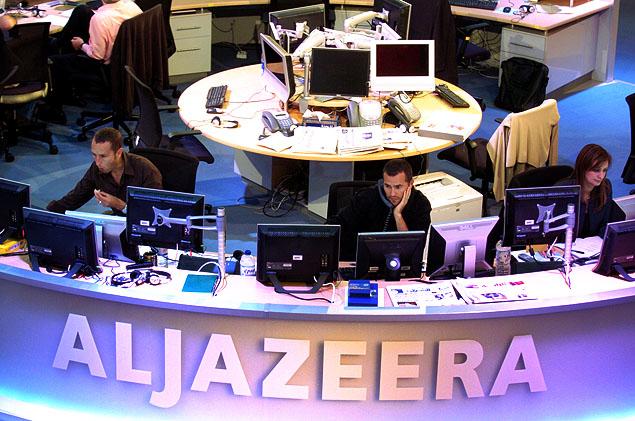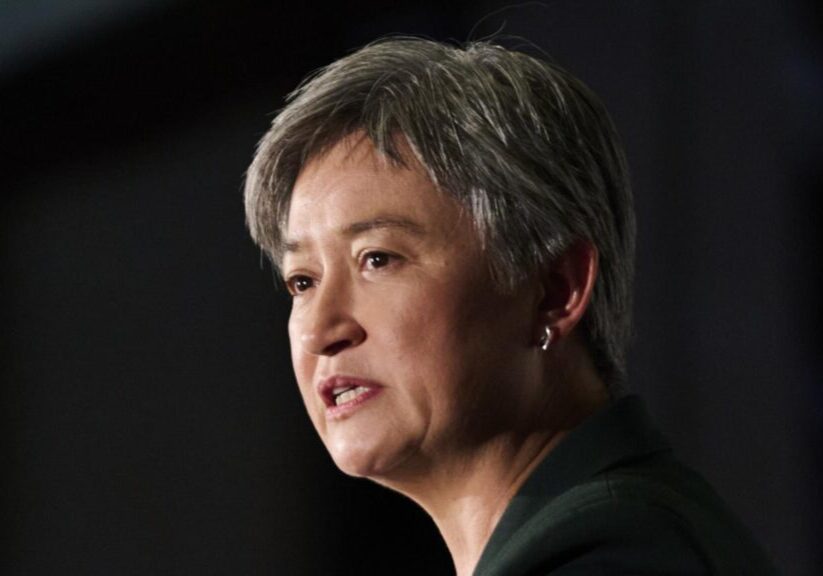IN THE MEDIA
Funded propaganda
Jul 21, 2017 | Gareth Narunsky

Gareth Narunsky
The Daily Telegraph – 21 July 2017
Serious questions need to be asked about the ABC and Al Jazeera
Last Friday three terrorists opened fire at a group of policemen near the Lion’s Gate in Jerusalem’s Old City, killing two Druze officers. The attackers fled to the Temple Mount, where they were eventually shot and killed.
Qatari-based Al Jazeera initially reported the incident as “at least three Palestinians killed in shooting in Jerusalem’s Old City”.
Such skewed reporting against Israel from the Qatari-owned and controlled network is not uncommon, but it comes at a time when Qatar’s Arab neighbours have made it known they’ve had enough of Al Jazeera’s promotion of fundamentalism and that Arab monarchy’s support for extremist groups across the region.
After all, this network has provided a platform for extremists such as Muslim Brotherhood spiritual leader Yusuf al-Qaradawi, infamous for his anti-semitism, including praise of Hitler, and Ahmad Muaffaq Zaidan, named by the US government as a member of al-Qaeda. The mother and sister of London Bridge terrorist Youssef Zaghba told Britain’s The Times on June 8 that the network, along with the internet, had played a role in his radicalisation.
Former Al Jazeera journalist Peter Greste, who was jailed in Egypt on charges of conspiring with the Muslim Brotherhood, told ABC radio on June 9 that “there may be some truth at a higher level, a management level” of collusion between the network and terrorists and that “it seems pretty clear from watching some of Al Jazeera’s Arabic coverage and the coverage of Al Jazeera’s Egyptian channel Mubasher that there was a bias in favour of the Muslim Brotherhood”. One-time Cairo bureau chief Mohamed Fahmy, who was arrested and sentenced alongside Greste and is now suing his former employer, stated in June that the network is indeed a propaganda channel for Islamists and an arm of Qatari foreign policy, telling Bloomberg “Al Jazeera is a voice for terrorists”.
Yet, Australia’s taxpayer-funded ABC continues to use Al Jazeera broadcasts despite its own editorial policies calling for content demonstrating independence and integrity.
In addition, none of this context was brought up when visiting Al Jazeera host Mehdi Hasan appeared on the ABC’s Q&A last Monday night.
To be fair, the British-born, US-based commentator is just an employee of Al Jazeera, and many of the positions he espoused on Q&A were sensible. He is correct that terrorism is not (for the moment) an existential threat to our society. But claiming, as he did, that “you’re more likely to be killed falling out of bed in the morning” than by a terrorist suggests there’s no difference between a bed and a group actively trying to kill people and impose their will on society. Hasan’s omissions were even more telling. He singled out Saudi Arabia alone as an incubator of extremism and terrorism, while completely ignoring Iran’s threatening regional network, sponsorship of terrorism and global disharmony, and Qatar’s support for extremist groups.
Is Hasan unaware of Qatar’s unsavoury activities? Indeed he need only read arguably the most highprofile newspaper in his country of residence, The New York Times, where David D. Kirkpatrick wrote in September 2014: “Qatar has for many years helped support a spectrum of Islamist groups around the region by providing safe haven, diplomatic mediation, financial aid and, in certain instances, weapons.”
In addition to bankrolling al-Qaeda-linked groups in Syria, Qatar continues to provide financial and logistical support to radical Islamist groups across the Middle East.
It has for years been providing finances and, more recently, weapons to radical factions in Libya. Qatar also propped up the destabilising Muslim Brotherhood regime in Egypt and provides safe haven to members who fled after its downfall.
Mehdi Hasan may not be “a spokesman for Al Jazeera or Qatar” as he told Lateline the week before, but his omission of any of the above context is concerning. The same can be said about the failure of Australia’s own government-owned broadcaster to raise the issue with him, or indeed, review its use of Al Jazeera content in light of its statutory obligations to provide balance and fairness.
Gareth Narunsky is national media liaison at the Australia/Israel & Jewish Affairs Council.
Tags: Australasia











